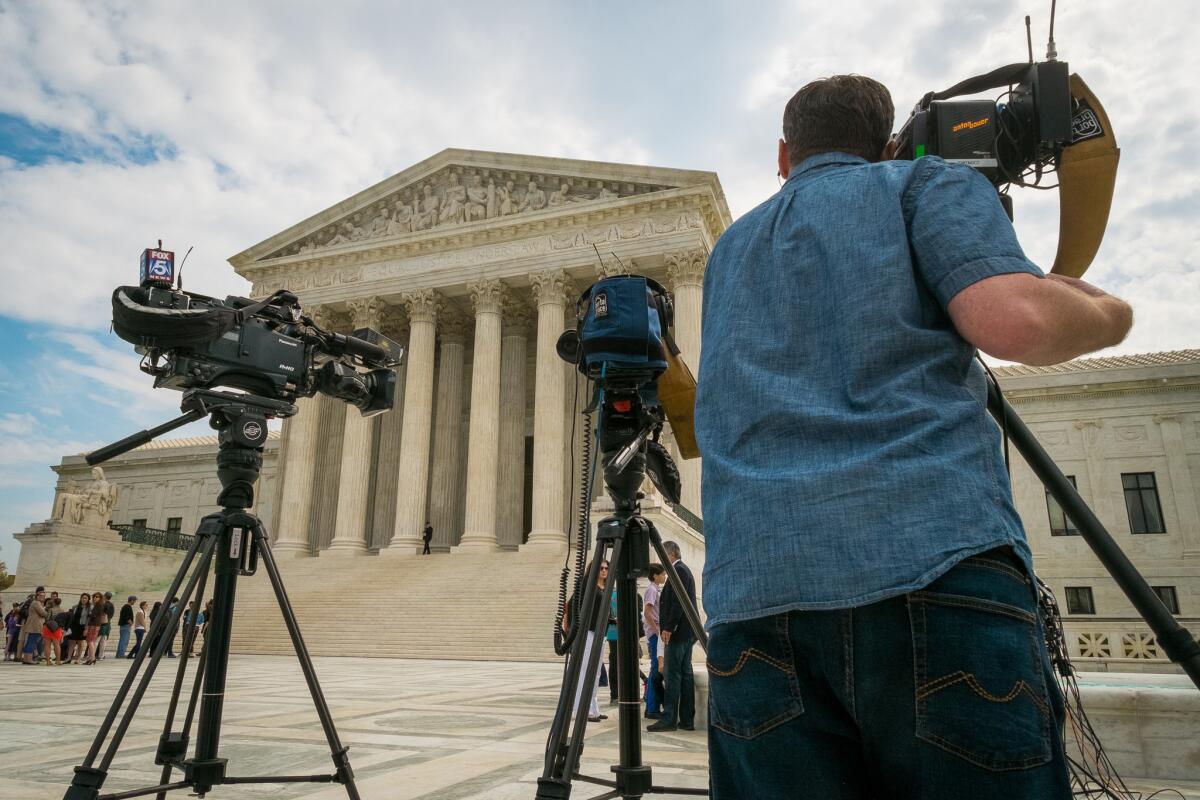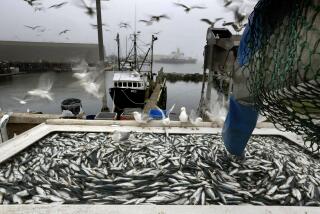Editorial: It’s up to the Supreme Court to decide: Is a fish a ‘tangible object’?

- Share via
Justices of the Supreme Court expressed justifiable skepticism this week about the use of a law aimed at financial crimes to prosecute a fisherman who destroyed evidence of an illegal catch. By reversing the conviction of John Yates, the court can put federal prosecutors on notice that they need to pay attention not only to the wording of criminal laws but also to their context and purpose.
Yates is a commercial fisherman who was cited in 2007 for violating a law against catching red groupers smaller than 20 inches in length. After a fish and wildlife officer left Yates’ boat, Yates allegedly ordered his crew to dispose of the undersized groupers and replace them with larger fish. When the vessel returned to port, the office measured the fish and concluded that there had been a substitution, a scheme confirmed by a crew member. Yates was convicted of destroying, concealing or making a false entry in any “record, document or tangible object” with the intent of obstructing an investigation.
That offense was part of a law passed by Congress after the scandal involving the Enron energy corporation. That the provision was aimed at the destruction of financial records is obvious from the law’s
reference to “making a false entry.” Yet prosecutors concluded that fish were among the “tangible objects” whose destruction Congress meant to outlaw.
At Wednesday’s oral argument, the lawyer for the U.S. government argued that “if you stop someone on the street and ask them is a fish a tangible object, the answer would almost certainly be yes.” But Chief Justice John G. Roberts Jr. suggested that the answer would be different if the question was “Is a fish a record, document or tangible object?”
An equally doubtful Justice Antonin Scalia asked whether the prosecutor who charged Yates was “the same guy that brought the prosecution in Bond last term.” Bond vs. United States was a decision earlier this year in which the justices ruled that federal prosecutors couldn’t charge a woman who tried to poison a romantic rival under a law passed to implement a chemical weapons treaty.
Sometimes laws must be applied to factual circumstances that weren’t in the minds of the legislators who drafted them. But too often prosecutors eager to secure a conviction interpret laws in unreasonable or (as in this case) bizarre ways.
The Supreme Court, and lower courts, can do only so much to rein in this abuse of prosecutorial discretion. The Department of Justice also needs to make it clear to U.S. attorneys across the country that creativity in interpreting federal statutes is not a virtue and won’t be rewarded.
Follow the Opinion section on Twitter @latimesopinion
More to Read
A cure for the common opinion
Get thought-provoking perspectives with our weekly newsletter.
You may occasionally receive promotional content from the Los Angeles Times.









